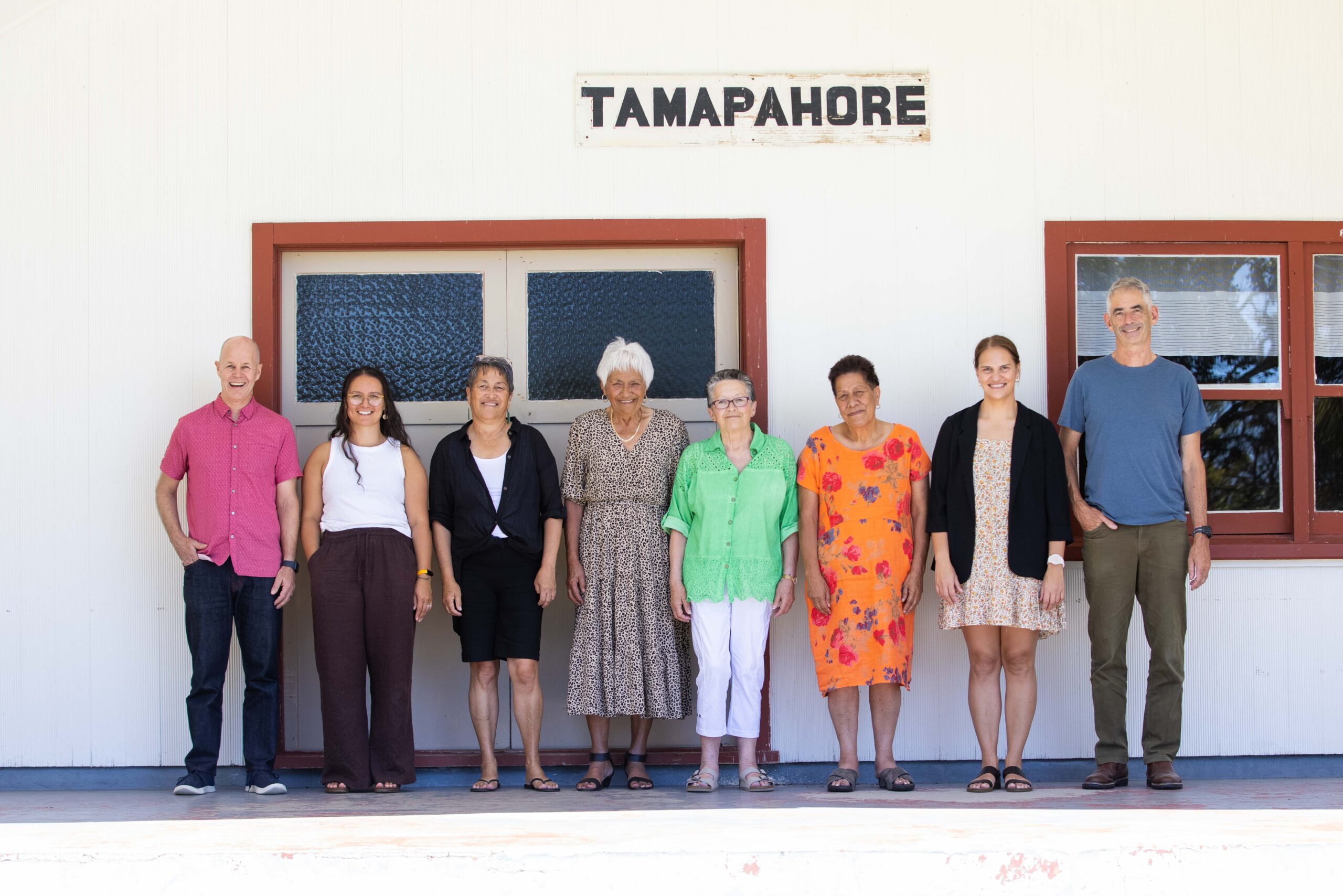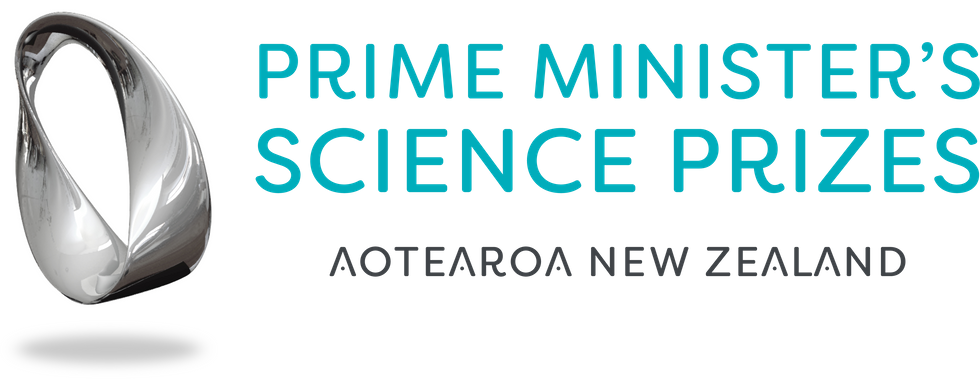Finding a genetic cause for stomach cancer in a whānau now saves thousands of lives

MEDIA RELEASE: 2023 TE PŪIAKI PUTAIAO MATUA A TE PIRIMIA SCIENCE PRIZE
A whānau-led research project that discovered the gene causing inherited stomach cancer has won Te Pūiaki Putaiao Matua a Te Pirimia, the Prime Minister’s Science Prize for 2023.
This prize is awarded for an innovative partnership between members of the McLeod whānau and their community, geneticists from the University of Otago, and clinicians from Tauranga Hospital, that began almost 30 years ago. Together they identified a genetic mutation (in the CDH1 gene) which was causing members of the McLeod whānau to die from stomach cancer at a young age. Their work led to the naming of a new cancer syndrome: Hereditary Diffuse Gastric Cancer. The researchers developed a genetic test which gives members of stomach cancer families from around the world the ability to understand their risk of cancer and take preventative action.
Gene testing and subsequent treatment has saved the lives of about 400 to 450 people in Aotearoa New Zealand (and uniquely to this project, the team members have met nearly all of those people). Also positively affected are the many hundreds of people from at-risk families who now know they don’t carry the gene – allowing them to move on with their lives without the constant fear of an early death. It is estimated that 27,000 people in Europe and the United States of America will have their lives saved over the next few years based on this research. The CDH1 gene mutation also causes a type of breast cancer that is difficult to treat.
In awarding the prize, the selection panel said the enduring partnerships between the research team, hospital clinicians, whānau members, and their community serves as an exemplar of how to meet a community’s needs and how to uphold cultural values and data sovereignty within healthcare research.
Finding the gene
Maybelle McLeod was working as a nurse in the mid 1990s when she started to wonder if there was a genetic reason for the large number of her family members who had died young from stomach cancer – some as young as teenagers.
“My cousin had died. She was my age at the time, she was 28, and I came back and just thought something wasn’t right. We had three people who died that year.”
She had been to a genetics conference, and rang the genetics department at the University of Otago to see if they could help. That’s when Professor Tony Reeve called in Parry Guilford, now a Fellow of the Royal Society of New Zealand, who had worked on finding genes for human deafness in Europe using a very early version of the Human Genome Project.
Before work began on identifying whether there was a genetic cause for the high rate of stomach cancer in the McLeod whānau, the research team drew up an innovative contract, to agree the roles of project members and to allow whānau to keep control of their genetic information. This had never been done before. The contract was never legally tested, however, because the overwhelming feeling was that everyone in the project pulled together for the common goal of saving lives.
“After numerous meetings and discussions, we got to that level of trust and understanding,” says Parry. “I often quote The Pogues song ‘Fairytale from New York’. There’s a line I love: “I took your dreams and put them with my own”.
“I took the dreams of the whānau and what they wanted, which was to get rid of this awful disease. And I put that with my own dreams, my own ambitions, and that’s what driven me through this project for the last 28 years.”
To identify the gene, they needed blood samples from whānau members, and permission to access tissue samples from the family members who had died. “But it wasn’t easy,” recalls Maybelle. “The family said they had a curse on them, so they weren’t forthcoming initially.”
The idea of the curse on the affected family had come about over many years in their community as a way of explaining the number of family members who were dying young – from false ideas about selling off iwi land to breaking naming traditions. “I had to convince them,” says Maybelle.
By continuing to build trust and assuring data sovereignty, the team were able to gather over 100 samples. They drew up a list of candidate genes they thought could have been possibly causing this cancer.
“Fortunately, the gene that we finally found, CDH1, was quite high on that list. So by using linkage analysis, followed by DNA sequencing, we were able to show that the gene CDH1 was the cause of cancer in this family,” says Parry. CDH1’s role was quickly validated in two other whānau affected by stomach cancer, and subsequently in many more families from Aotearoa New Zealand and around the world.
The team has played an active role in the international inherited cancer research community for many years now, work which has included leading the drafting of the current international Hereditary Diffuse Gastric Cancer clinical management guidelines.
Treating the family
The development of a genetic test allows whānau members to find out if they have the variant of the CDH1 gene that causes cancer. An early version of the testing machine— nicknamed ‘The Machine That Goes Ping’— now resides at Kimihauora Health and Research Clinic at Tamapahore Marae in Mt Maunganui.
Genetic testing is recommended at age 16, or younger in some cases. It is then advised that carriers of pathogenic CDH1 variants have an operation in their early to mid twenties to remove the stomach, at a time that fits in with schooling, university, work, and family obligations. For those not wishing to have surgery, annual endoscopic surveillance is recommended.
For those who test positive, it’s important to the project team that they and their whānau members are well supported.
“I walk with our family through all of their CDH1 journey, through every step from genetic tests to post surgery. It’s not just about the person who is the gene carrier. It’s about mum and dad and the siblings,” says Erin Gardiner, who is Clinical Coordinator at the Kimihauora Health and Research Clinic.
“It’s about treating the family, not the individual,” says Surgeon Dr Jeremy Rossaak, who works closely with Erin and has been involved with the project for the past 15 years. They seek to uphold Māori values through every part of the treatment.
The philosophy extends to the idea that patients are never ‘discharged’ as such, and follow-up care and advice is paramount. “I’ve learned a huge amount about how to treat communities and how treating Māori in a way that’s respectful and beneficial to Māori is actually the way we should be treating all our patients,” says Jeremy.
Supporting whānau Māori
Project member, Associate Professor Karyn Paringatai found out in 2009 that she carries a CDH1 gene variant, and had a full gastrectomy (stomach removal) shortly afterwards. She gave a TEDx talk entitled ‘My whakapapa saved my life’, encouraging others to learn their whakapapa (genealogy).
Supported by a research grant from the Marsden Fund, Karyn started to look more deeply at whānau experiences with the CDH1 gene: not only their clinical treatment, but also their interactions with and understanding of science.
“There’s a lot of cogs turning in this type of research. You’ve got the science side of things, which has historically not been too receptive to matāuranga Māori and their domain, and then you’ve got the healthcare system, which is exactly the same. And so I’ve come down the middle to join those two sides together a little bit more, and incorporate Māori knowledge, te reo, tikanga, into those two spaces and how we can work better with whānau Māori all around the country to provide better services in care.”
“I’m really fortunate and lucky to have had my life saved by their research. And this is my payback, and it’ll be a payback that I’ll do for the rest of my life.”
Next steps
The award comes with a $500k prize that will allow the project team to extend their work.
First, they plan to build an online hub with information about the CDH1 gene in Aotearoa. Following best-practice principles to ensure data sovereignty, this hub will build a detailed map of the affected whānau. It will also provide information about treatment and management, and help with the identification of new families affected by this gene.
The prize money will also go towards research to find better ways to care for affected families. At present, a full gastrectomy is the safest treatment option, but it is a difficult operation with long-term impacts related to nutrition and the need to carefully regulate food intake. Many of those who have had a gastrectomy also report struggling with their mental health.
Improvements in surveillance methods, and drugs that prevent cancers from developing in the first place, would allow gene carriers to delay, or even avoid, having their stomach removed, without increasing the risk of cancer, says Parry.
Whānau-led research
Parry says it’s been an “utter privilege” to be a part of this project for most of his working life.
“This research, was of course, started by the whānau. They came out and found some researchers to work with them. And it’s been whānau-led throughout its life-course. And for us in the lab, it’s been incredibly empowering to work in that way. We know we’re doing research that people want, that people need. We know we that we are part of an engaged community, and that’s changed how we see science.”
“We don’t see ourselves as being separate from the people who we are trying to help. We see ourselves as part of these communities and we take the lead from them when we decide where to go next with our research.”
“I think this type of research is way more likely to last… it will carry on because everyone owns the project, everyone feels part of the project, and we all go forward in the same direction.”
